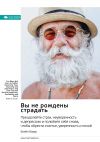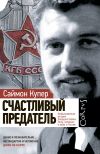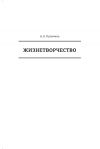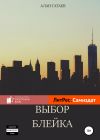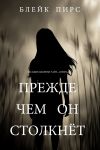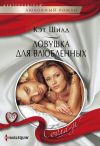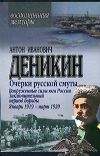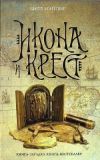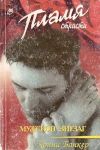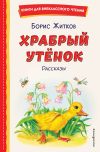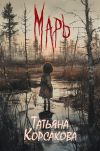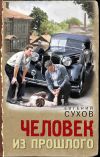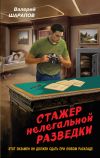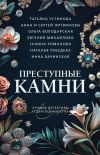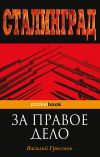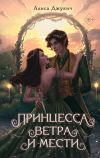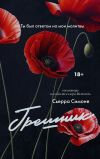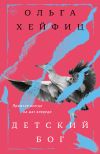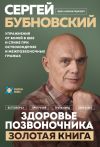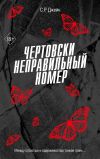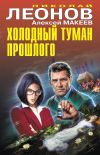Текст книги "Уильям Блейк в русской культуре (1834–2020)"
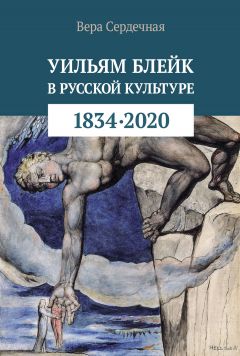
Автор книги: Вера Сердечная
Жанр: Культурология, Наука и Образование
Возрастные ограничения: +16
сообщить о неприемлемом содержимом
Текущая страница: 23 (всего у книги 23 страниц)
573. Esterhammer A. Blake and language // Williams N. M. (ed.) Palgrave advances in William Blake studies. Palgrave Macmillan, 2006. P. 63–84.
574. Frank M. The Philosophical Foundations of Early German Romanticism. State University of New York Press, 2004. 292 p.
575. Freedman L. William Blake and the Myth of America: From the Abolitionists to the Counterculture. Oxford University Press, 2018. 280 p.
576. Frye N. Fearful symmetry. Princeton University Press, 1947. 462 p.
577. Furst L. R. Romanticism. Norfolk: Methuen, 1969. 80 p.
578. Galloway G. Poems. The Tears of Poland. To which are added Songs on various subjects, etc. 2nd ed. Edinburgh, 1795. 42 p.
579. Garber F. Nature and the Romantic Mind: Egotism, Empathy, Irony // Comparative Literature. 1977. Vol. 29. No. 3. P. 193–212.
580. George D. H. Blake and Freud. Ithaca: Cornell University Press, 1980. 253 p.
581. Gilchrist A. Life of William Blake, 'Pictor Ignotus': in 2 vols. Vol. 1–2. London; Cambridge: Macmillan and Co., 1863.
582. Gillespie G. Romantic irony and the grotesque // Garber F. (ed.) Romantic irony. John Benjamins, 2008. P. 322–343.
583. Goode M. Blakespotting // PMLA. 2006. Vol. 121. No. 3. P. 769–786.
584. Grant J. E. Inside the Blake Industry // Studies in Romanticism. 1982. № 21. 436–443.
585. Gustafsson R. The Imagination of Spring: The Poetry of Afanasy Fet. Yale University Press, 1966. 264 p.
586. Gustafsson D. Blake & Orthodoxy // Язык. Словесность. Культура. 2013. № 1. P. 60–77.
587. Haggarty S., Mee J. William Blake. Songs of Innocence and of Experience. Macmillan, 2013. 212 p.
588. Hagstrum J. H. William Blake: Poet and Painter. University of Chicago Press, 1964. 342 p.
589. Hamilton P. (ed.) The Oxford Handbook of European Romanticism. Oxford, 2019. 864 p.
590. Hayes K. J. Poe's Knowledge of William Blake // Notes & Queries. 2014. Vol. 61. Is. 1. P. 83–84.
591. Hilton N. Becoming Prolific Being Devoured // Studies in Romanticism. 1982. № 22. P. 417–424.
592. Hilton N., Vogler Th. (eds.) Unnamed Forms: Blake and Textuality. Berkeley: University of California Press, 1986. xiii+267 p.
593. Hirsch E. D., Jr. Innocence and Experience: An Introduction To Blake. New Haven and London: Yale University Press, 1964. 335 p.
594. Hobson C. Blake and Homosexuality. Springer, 2016. 249 p.
595. Holland J. German romanticism and Science. Routledge, 2009. 232 p.
596. Hoover S. The Public Reception of Gilchrist's Life of Blake // Blake / An Illustrated Quarterly [Blake Newsletter]. 1974. Vol. 8, Is. 1–2, Summer-Fall. P. 26–33.
597. Hopkins D. William Blake and British Surrealism: Humphrey Jennings, the Impact of Machines and the Case for Dada // Visual Culture in Britain. 2018. Vol. 19. Issue 3. P. 305–320.
598. Hopkins S. P. «I Walk Weeping in Pangs of a Mothers Torment for Her Children»: Women's Laments in the Poetry and Prophecies of William Blake // Journal of Religious Ethics. 2009. Vol. 37. Is. 1. P. 39–81.
599. Johnson M. L., Grant J. E. (eds.) Blake's Poetry and Designs. New York: Norton, 1990. 628 p.
600. Jones J. Blake on Language, Power, and Self-Annihilation. Springer, 2010. 235 p.
601. Kagan-Kans E. Hamlet and Don Quixote: Turgenev's Ambivalent Vision. Walter de Gruyter GmbH & Co KG, 2015. 161 p.
602. Keynes G. A Bibliography of William Blake. New York, 1921. 516 p.
603. Keynes G. Blake studies: Notes on his life and works in seventeen chapters. New York: Haskell, 1971. 216 p.
604. Keynes G. (ed.) The letters of William Blake. New York: Macmillan, 1956. 298 p.
605. Keys R. The Reception of the Work of W. B. Yeats in Russia and Countries of the Former USSR // Klaus J. (ed.) The Reception of W. B. Yeats in Europe. London; New York: Continuum, 2006. P. 135–149.
606. Kriger M. An Unpublished Tragedy by Nikolaj Gumilev // The American Slavic and East European Review. 1949. Vol. 8, No. 3 (Oct.). P. 175–184.
607. Kuhn R. C. Children of the century [Leskov's Lady Macbeth: last born of the void] // Kuhn R. C. The Demon of Noontide: Ennui in Western Literature. Princeton, 2017. P. 221–278.
608. Leonard G. 'Without Contraries There is No Progression': Cinematic Montage and the Relationship of Illustration to Text in William Blake's «The [First] Book of Urizen» // University of Toronto Quarterly. 2011. Vol. 80. Is. 4. P. 918–934.
609. Lindsay J. William Blake: His Life and Work. Braziller, 1979. 334 p.
610. Lovejoy A. O. On the Discrimination of Romanticisms // PMLA. 1924. Vol. 39. No. 2 (Jun.). P. 229–253.
611. Löwy M., Sayre R. Romanticism Against the Tide of Modernity (Post-Contemporary Interventions). Duke University Press Books, 2002. 328 p.
612. Luca V. A. de. Words of Eternity: Blake and the Poetics of the Sublime. Princeton, 1991. 256 p.
613. Luckyj G. S. N. Ševčenko and Blake // Harvard Ukrainian Studies. 1978. Vol. 2, № 1 (March). P. 94–115.
614. Makdisi S. William Blake, Charles Lamb, and Urban Antimodernity // SEL: Studies in English Literature (Johns Hopkins). 2016. Vol. 56. Is. 4. P. 737–756.
615. Malkin B. H. A Father's Memoir of His Child. London, 1806. 62 p.
616. Masing U. William Blake // Eesti Evangeelne Luterlik Kirik. Tallinn: EELK Konsistooriumi väljaanne, 1986. P. 26–34.
617. Maude A. The Life of Tolstoy: Later Years. New York: Dodd, Mead & Company, 1910. 688 p.
618. McCarthy E. William Blake's Laocoon: The Genealogy of a Form. Unpub. thesis. University of Kansas, 2007. 498 p.
619. McGann J. William Blake Illuminates the Truth // Critical Studies. 1989. № 1. P. 43–60.
620. McLean Th. E. The Other East: Poland, Russia, and British Romanticism. A thesis submitted in partial fulfillment of the requirements for the Doctor of Philosophy degree in English. University of Iowa, 2004. 197 p.
621. Middleton P. The Revolutionary Poetics of William Blake, part II – Silence, Syntax and Spectres // Oxford Literary Review. 1983. № 6. P. 35–51.
622. Milton J. The A Brief History of Moscovia and of other less known Countries lying eastward of Russia as far as Cathay, gather'd from the Writings of several Eye-witnesses // The prose works of John Milton. In 2 vols. Vol. II. Philadelphia: Herman Hooker Publ., 1845. P. 350–374.
623. Mitchell W. J. T. Blake's Composite Art: a Study of the Illuminated Poetry. Princeton University Press, 1978. xix + 232 p.
624. Moody R. (ed.) Dinosaurs and Other Extinct Saurians: A Historical Perspective. Geological Society of London, 2010. 394 p.
625. Mulhallen K. (ed.) Blake in Our Time. Essays in Honour of G. E. Bentley. Toronto, 2010. 300 p.
626. Nabokov V. The Annotated Lolita. McGraw-Hill, 1970. 440 p.
627. Natoli J. Twentieth-century Blake criticism: Northrop Frye to the Present. New York, London: Garland Publ., 1982. 326 p.
628. Ostriker A. Desire Gratifed and Ungratifed: William Blake and Sexuality // Blake / An Illustrated Quarterly. 1982–1983. № 16.3. P. 156–165.
629. Otto P. Blake's composite art // Williams N. M. (ed.) Palgrave advances in William Blake studies. Palgrave Macmillan, 2006. P. 42–62.
630. Otto P. «Rouse Up O Young Men of the New Age!»: Oe Kenzaburo and William Blake on Bodies, Biopolitics, and the Imagination // Watson A., Williams L. (eds) British Romanticism in Asia. Palgrave Macmillan, 2019. P. 361–386.
631. Paley M. Energy and The Imagination: a Study of the Development of Blake's Thought. Oxford University Press, 1970. 286 p.
632. Paley M. D. William Blake's «Milton/A Poem» and the Miltonic Matrix of 1791–1810 // University of Toronto Quarterly. 2011. Vol. 80. Is. 4. P. 786–814.
633. Peckham M. Triumph of Romanticism: Collected Essays. Columbia: University of South Carolina Press, 1970. 462 p.
634. Percival M. William Blake's Circle of Destiny. New York: Columbia University Press; London: H. Milford, 1938. xii+334 p.
635. Phelps W. L. The Beginning of the English Romantic Movement. A study in eighteenth century literature. Boston: Ginn & Company, 1893. 192 p.
636. Pichot A. Artiste, poète et fou (la vie de Blake) // Revue de Paris, Paris, 1833. № 5.8. P. 132–150.
637. Pichot A. Biographie: Artistes anglais: William Blake // Gazette littéraire: Revue française et étrangère de la littérature, des sciences, des Beaux-Arts, etc. Paris. 1830. 17 March. P. 265–268.
638. Polonsky R. Revolutionary Etudes: The Reception of Shelley in Russia // Schmid S., Rossington M. (eds) The Reception of P. B. Shelley in Europe. London; New York: Continuum, 2008. P. 229–246.
639. Raine K. Blake and the New Age. Routledge, 2013. 180 p.
640. Raine K. Blake and Tradition: in 2 vols. Routledge & Kegan Paul, 1969.
641. Raine K. Golgonooza the City of Imagination: last studies on William Blake. Lindisfarne Press, 1991. 182 p.
642. Raine K. William Blake. New York, Washington: Praeger Publ., 1971. 216 p.
643. Raysor Th. (ed.) English romantic poets. New York, 1956. 326 p.
644. Regier A. Anglo-German Connections in William Blake, Johann Georg Hamann, and the Moravians // Studies in English Literature (Johns Hopkins). 2016. Vol. 56. Is. 4. P. 757–776.
645. Ripley W. C. The Influence of the Moravian Collection of Hymns on William Blake's Later Mythology // Huntington Library Quarterly. 2017. Vol. 80. Is. 3. P. 481–498.
646. Rix R. William Blake and the Cultures of Radical Christianity. Routledge, 2016. 192 p.
647. Roberts J. Blake. Wordsworth. Religion. Bloomsbury Publishing, 2011. 144 p.
648. Robinson H. C. Diary, reminiscences, and correspondence: in 3 vols. London: Macmillan and Co., 1869.
649. Rosslyn W. A propos of Anna Akhmatova: Boris Vasilyevich Anrep (1883–1969) // New Zealand Slavonic Journal. 1980. № 1. P. 25–34.
650. Rosslyn W. Boris Anrep and the Poems of Anna Akhmatova // The Modern Language Review. 1979. Vol. 74, № 4. P. 884–896.
651. Rovira J. (ed.) Rock and Romanticism: Blake, Wordsworth, and Rock from Dylan to U2. Lexington Books, 2018. 198 p.
652. Rowland Ch. Blake and the Bible: Biblical Exegesis in the Work of William Blake International // Journal of Systematic Theology. 2005. Vol. 7. Is. 2. P. 142–154.
653. Safranski R. Romanticism: A German Affair. Northwestern University Press, 2015. 376 p.
654 Santorun M., Cecilia M. «The War 'twixt Sun and Moon»: Evil and Gender in William Blake's Early Illuminated Books and Alan Moore's From Hell // English Studies. 2019. Vol. 100. Is. 4. P. 387–406.
655. Schaik P. van. The Significance of «Mental Fight» in Ben Okri and William Blake // Journal of Literary Studies. 2012. Vol. 28. Is. 4. P. 87–97.
656. Schorer M. William Blake: the Politics of Vision. New York: H. Holt and Company, 1946. 522 p.
657. Serdechnaia V., Serdechnyi E. The Reception of Blake in Russia and the USSR // Erle S., Paley M. (eds) The Reception of William Blake in Europe: in 2 vols. Vol. 2. Bloomsbury Academic, 2019. P. 501–532.
658. Serdechnaya V. Rev. of William Blake, Songs of Innocence and of Experience (Moscow: Rudominо, 2010), 240 pp. // Blake / An Illustrated Quarterly. 2013. № 47.1 (Summer). 5 pars.
659. Shaffer E. Series editor's preface // Erle S., Paley M. (eds.) The Reception of William Blake in Europe. Vol. 1. Bloomsbury Academic, 2019. P. xii-xv.
660. Shaw G. B. Collected Letters, 1898–1910. New York: Dodd, Mead & Co., 1972. 929 p.
661. Shivshankar M. Rise of William Blake. New Delhi, 1990. 250 p.
662. Šilina B. William Blake and English Pre-romanticism. Riga: P. Stučcas Latvijas Valsts universitāte, 1982. 56 s.
663. Simpson D. Blake and Romanticism // Eaves M. (ed.) The Cambridge Companion to William Blake. Cambridge University Press, 2003. P. 169–187.
664. Simpson D. Irony and Authority in Romantic Poetry. Totawa, New Jersey: Rowan and Littlefeld, 1979. 267 p.
665. Sławek T. The Outlined Shadow. Phenomenology. Grammatology. Blake. Katowice: Uniwersytet Śląski, 1985. 166 p.
666. Smith J. T. Blake // Smith J. T. Nollekens and His Times: in 2 vols. London, 1828. P. 454–488.
667. Smith J. A. Telling Love: Twelfth Night in Samuel Richardson, Teresia Constantia Phillips, and William Blake // Studies in Philology. 2015. Vol. 112. Issue 1. P. 194–212.
668. Son H. Canon Formation and the Reception of William Blake's and Dickinson's Poetry in Korea // CLCWeb: Comparative Literature & Culture: A WWWeb Journal. 2014. Special Issue, Vol. 16. Is. 6. P. 1–10.
669. Stauffer A. M. The first known publication of Blake's poetry in America // Notes and Queries. 1996. № 43(1). P. 41–43.
670. Stempel D. Blake, Foucault, and the Classical Episteme // PMLA. 1981. № 96. P. 388–407.
671. Story A. William Blake: His Life, Character and Genius. New York: Haskell, 1973. 160 p.
672. Swinburne A. Ch. William Blake. A critical essay. London, 1868. 358 p.
673. Tayler I. The Woman Scaly // Midwestern Modern Languages Association Bulletin. 1973. № 6. P. 74–87.
674. Thorpe C., Baker C., Weaver B. The major English romantic poets: a symposium in reappraisal. Southern Illinois University Press, 1957. 269 p.
675. Tiutvinova T. The Reception of Blake's Art in Russia: An Echo of Blake's Universe // Erle S., Paley M. (eds) The Reception of William Blake in Europe: in 2 vols. Vol. 2. Bloomsbury Academic, 2019. P. 533–546.
676. Turgenev I. A Hunter's Sketches / trans. R. Bobrova, comm. N. Chernov. Moscow, 1922. 374 p.
677. Vaughan B. Letters, on the Subject of the Concert of Princes, and the Dismemberment of Poland and France. London: G. GJ. & J. Robinson, 1793. 254 p.
678. Viscomi J. Blake and the Idea of the Book. Princeton University Press, 1993. xxvii + 453 p.
679. Walker L. William Blake in the 1960s: Counterculture and Radical Reception. University of Sussex, 2015. 194 p.
680. Warner N. O. Shaw, Tolstoy and Blake's Russian Reputation // Blake / An Illustrated Quarterly. 1983–84. № 17.3 (Winter). P. 102–104.
681. Warton Th. The History of English Poetry from the Close of Eleventh Century to the Commencement of the Eighteenth Century. In 3 vols. Vol. 1. London: Dodsley et al., 1774. 644 p.
682. Weir D. Brahma in the West: William Blake and the Oriental Renaissance. SUNY Press, 2003. 184 p.
683. Welch D. M. Essence, Gender, Race: William Blake's Visions of the Daughters of Albion // Studies in Romanticism. 2010. Vol. 49. Is. 1. P. 105–131.
684. Wellek R. Romanticism Re-Examined // Nichols S. (ed.) Concepts of Criticism. Yale University Press, 1963. P. 199–221.
685. Wellek R. The Concept of Romanticism in Literature History // Nichols S. (ed.) Concepts of Criticism. Yale University Press, 1949. P. 128–198.
686. Wernaer R. M. Romanticism and the Romantic school in Germany. New York, London, 1910. xviii + 373 p.
687. Wessells M. L. Romantic Irony and Blake: The Problem of the Songs of Innocence. College of William and Mary., 1966. 64 p.
688. West J. D. Neo-Romanticism in the Russian Symbolist Aesthetic // The Slavonic and East European Review. 1973. Vol. 51, № 124 (Jul.). P. 413–427.
689. White F. H. Degeneration, Decadence and Disease in the Russian fin de siècle: Neurasthenia in the life and work of Leonid Andreev. Manchester University Press, 2014. 304 p.
690. White H. The Mysticism of William Blake. Madison, 1927. 290 p.
691. Whitehead A. The Uncollected Letters of William Blake // Huntington Library Quarterly. 2017. Vol. 80. Issue 3. P. 423–435.
692. Whitehead A. 'humble but respectable': Recovering the Neighbourhood Surrounding William and Catherine Blake's Last Residence, No. 3 Fountain Court, Strand, c. 1820–27 // University of Toronto Quarterly. 2011. Vol. 80. Is. 4. P. 858–879.
693. Whitson R., Whittaker J. William Blake and the Digital Humanities: Collaboration, Participation, and Social Media. Routledge, 2013. 211 p.
694. Whittaker J. Blake and Music // Erle S., Paley M. (eds) The Reception of William Blake in Europe: in 2 vols. Vol. 2. Bloomsbury Academic, 2019. P. 667–678.
695. William Blake and the Age of Aquarius // Visual Culture in Britain. 2018. Vol. 19. Issue 3. P. 393–400.
696. William Blake, Künstler, Dichter, und religiöser Schwärmer // Vaterländisches Museum. 1811. 1 (January). P. 107–131.
697. Williams N. M. Introduction: understanding Blake // Williams N. M. (ed.) Palgrave advances in William Blake studies. Palgrave Macmillan, 2006. P. 1–21.
698. Williams M. N. 'The Sciences of Life': Living Form in William Blake and Aldous Huxley // Romanticism. 2009. Vol. 15. Is. 1. P. 41–53.
699. Wilson M. The Life of William Blake. Nonesuch Press, 1927. 397 p.
700. Yakovleva G. Blake in Russia // Blake Journal. 2000. № 5. P. 69–71.
Abstract
Blake in Russian culture: 1834–2020 by Vera Serdechnaia (Moscow, Gorodets Publ., 2021) offers a story of Blake reception in Russian criticism, literature and music. The author describes the history of Russian Blake translations, including the forgotten versions by Vladimir Elsner (Kiev, 1912), as well as the frst discovered translations by Nikolai Gumilyov (Petersburg, 1919–1921) and Serafma Remizova (Paris, 1920s – 1930s). The book also takes a dive into the life of the emigrant poet and mosaic artist Boris Anrep (1883–1969), who considered himself Blake's creative heir and wrote some poems, mainly unpublished, close to prophetic epics. Vera Serdechnaia shows the way Blake's poetry infuenced such Russian poets as Konstantin Balmont and Jurgis Baltrušaitis, Daniil Kharms and Nikolay Gumilyov, Joseph Brodsky and Veniamin Blazhenny, Yuri Stefanov and Andrei Tavrov. Blake also grabbed attention of a few Russian composers: Dmitry Smirnov wrote about 40 symphonic works on Blake; in 2020 Leonid Fedorov recorded an album «Blake», and Alexander Belousov created an opera «The Book of Seraphim» based on Blake's Book of Thel in Stanislavsky Electrotheatre.
Acknowledgments
I am truly grateful to Bloomsbury Publishing, who invited me as an author. My deepest gratitude to Sibylle Erle and Morton Paley, who trusted in me and inspired my studies. Also, I'd like to thank my colleagues in Blake studies, who showed me the precious examples of creativity: Luisa Calè, Eliza Borkowska, Edward Larrissy, Ágnes Péter, João Carlos Callixto, Yann Tholoniat, Susanne Schmid, Robert W. Rix, Jason Whittaker and Tanja Bakić.
Правообладателям!
Это произведение, предположительно, находится в статусе 'public domain'. Если это не так и размещение материала нарушает чьи-либо права, то сообщите нам об этом.